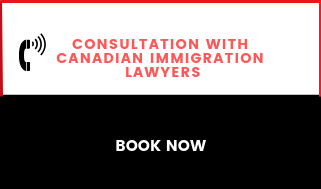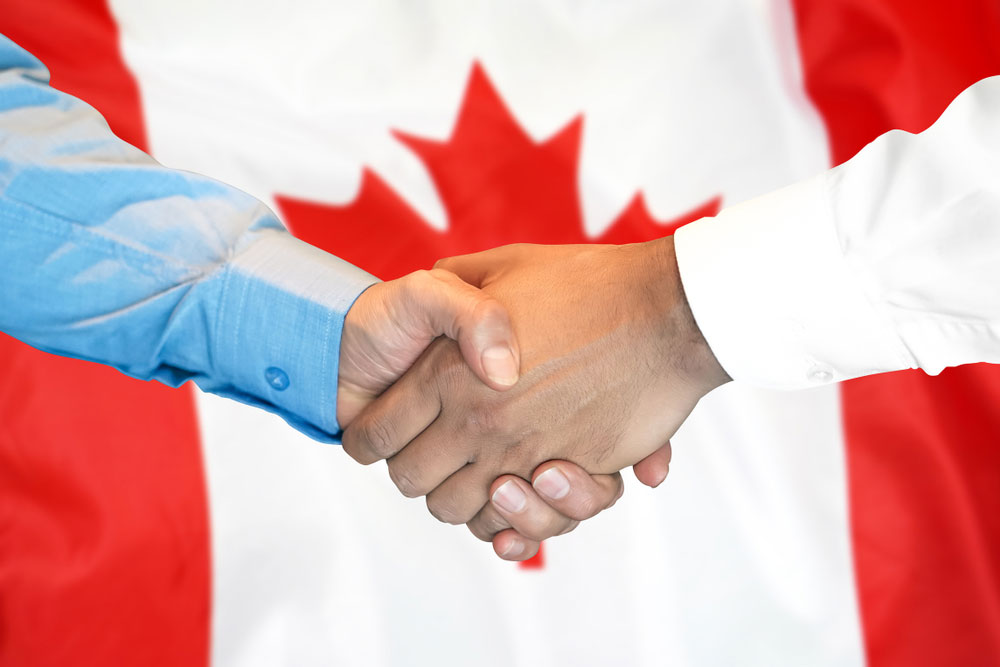
by Immilaw Team | Jan 31, 2022 | Canada Immigration
The temporary foreign worker program (TFWP) allows Canadian residents to bring in foreign workers through special immigration programs to work as caregivers. The Home Child Care Provider Pilot Program & Home Support Worker Pilot Program are the two options.
Run under the aegis of IRCC and ESDC; this caregiver program requires the employer and the caregiver to meet several criteria to become eligible.
Home Care Giver/ Home Support Worker Programs
These pilot programs allow qualified caregivers and families to come to Canada and later apply for PR. Any caregiver who has got a suitable job offer in Canada can gain the required work experience after arriving in Canada on a work permit. Authorities issue a PR after two years in such cases.
A caregiver with experience working in Canada can also apply for PR through these pilot programs. The application process depends on the caregiver’s qualifying work experience and current situation.
The two pilot programs through which caregivers can enter Canada:
Home Child Care Provider Pilot (NOC 4411)
The program accepts 2750 applications every year. However, the applications for 2022 are closed as the cap has been reached. So if you like to apply under this program, you need to wait until 2023 January 1, until the program reopens. (The caregiver’s experience as a foster parent does not count).
Home Support Worker Pilot (NOC 4412)
A caregiver can still apply under the Home Support Worker Pilot program. This caregiver program also accepts up to 2750 applications in a year. However, this program is still open for accepting 2022 applications. (The caregiver’s experience as a housekeeper does not count)
If you have a valid job offer under NOC4411 or 4412, you can come to Canada on work permits. Then, after gaining two years’ work experience in Canada, you can confirm your PR.
If you are already in Canada with sufficient work experience under the eligible NOC, you can apply for PR.
Caregivers can bring their families and apply for PR if they meet specific criteria. The caregiver applicant should have work experience for the respective pilot programs in these categories.
Work Experience Qualification categories – Caregiver Program
Applicants who have never worked as a full-time caregiver in Canada need to come to on a work permit and complete two years of work experience
Applicants without 24 months of experience (Category A)
Applicants who are otherwise eligible but lack the 24 months of qualifying Canadian work experience when their application for PR will receive an occupation-restricted open work permit (OROWP). Within 36 months of issuing the OROWP, the applicant must demonstrate at least 24 months of authorized full-time work experience. In addition, any qualifying work experience claimed must have been obtained within 36 months of the issuance of the OROWP.
Note: Some applicants may already have less than 24 months of qualifying Canadian work experience when receiving an OROWP. They can add this experience toward the 24-month requirement if they demonstrate that the 24 months’ experience was acquired within the preceding 36 months of submitting their proof of work experience.
Applicants with 24 months of experience (Category B)
Applicants with at least 24 months of qualifying Canadian work experience at the time of application will have to furnish proof of qualifying work experience in their PR application. In addition, the applicant must demonstrate that they have obtained a total of at least 24 months of eligible full-time work experience in Canada within the preceding 36 months of the time of application.
PR Application
The caregiver may apply for PR through the Home Child Care Provider or Home Support Worker pilot programs if they meet the eligibility requirements and have a job offer to work in the mentioned occupations.
Advantages of the Home Child Care Provider and Home Support Worker pilot programs
- Openwork permits give caregivers the advantage of working for more than one employer
- Employers don’t need to go through an LMIA
- The language requirements are straightforward and relaxed
- Caregivers can bring their families to Canada
- The spouse can also apply for an open work permit
- Caregivers can become PRs
- Work experience as a caregiver adds up for your PR application
Other Criteria
To immigrate to Canada as a caregiver, the applicant must have, assessed their educational credentials and language skills. In addition, they must prove that they can perform the job offered to them.
The caregiver applicant can get help from an immigration lawyer in Canada to file their application correctly to the Visa Office and fast-track it. The lawyers will also know about the latest COVID-19 restrictions for visa application and travel to Canada.
Fill Out Our Immigration Assessment Form
How Immilaw Immigration can help
Suppose you are in India and are looking to take up a job via the caregiver program in Canada. In that case, our Canadian immigration lawyers can help to assess your eligibility. They can also help you submit the applications and secure a work permit. In addition, they can further assist you in applying for PR in Canada and complete all the necessary legal formalities.
At ImmiLaw Immigration, our immigration lawyers can help you come to Canada as a caregiver and bring your spouse along. We can fast-track your caregiver application and make submissions on your behalf. You may contact our office at 613-276-1454. In addition, you can send your query to us at info@immilawimmigration.com. We will contact you soon and schedule a consultation with one of our best immigration lawyers.
Contact Us
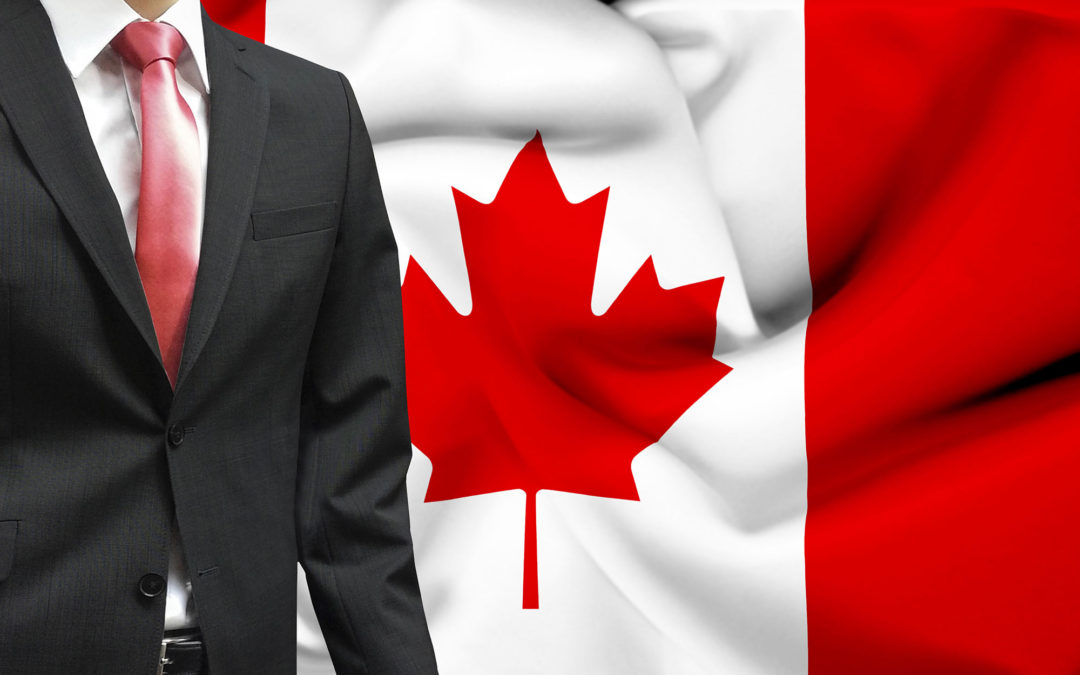
by Immilaw Team | Dec 15, 2021 | Canada Immigration
It is not compulsory for any applicant planning to move to Canada to hire an immigration lawyer to help them in the process. However, hiring one has many benefits—the success of your immigration application increases when you hire an experienced and trustworthy immigration lawyer.
Filling up the Canadian immigration application form is a lengthy and complex process, which one should not take lightly. It entails a lot of paperwork and documentation, and the applicant has to cross many bureaucratic hurdles before the Canadian authorities issue the visa. This is true even when the applicant plans to temporarily stay in Canada (for a job or study).
Some applicants indeed take the trouble to fill out the form and assemble the related documents independently. However, in such a case, the chances of rejection of the immigration application are high and can cause a lot of heartaches. Therefore, hiring an experienced immigration lawyer to help you prepare your immigration application and present your case if there is an appeal or judicial review is perhaps the most surefire way to ease out of the entire immigration process.
Why is hiring a Canadian immigration lawyer the best option?
A Canadian immigration lawyer possesses a formal law degree from a recognized university and will have undergone comprehensive training in different branches of law. Additionally, law societies control the conduct of lawyers. Breaking any of their rules can lead to a suspension of their license.
About immigration, lawyers experienced in this field of law have extensive knowledge of immigration law and its latest changes. So, they can understand the implications of the law better. They are also better to identify, analyze, and synthesize Canadian immigration laws.
Canadian immigration law streams are vast, complicated, and diverse, and it is only lawyers who will understand and translate the legalese into a language that commoners can understand.
There are many pathways through which applicants can immigrate to Canada. Besides skilled worker programs, there are federal economic streams and PNPs. For this reason, each applicant will choose a different and most suitable path to immigrate to the country.
There is likely to be a basic level of confusion when many channels for immigration are available. An immigration lawyer can help give you information about a lesser-known stream and guide you through the ones you can take up.
An immigration lawyer will suggest the most suitable immigration plan for you and your family. They can also help you with suggestions and inform you about options available in case of unfavorable decisions by the visa authorities.
Immigration lawyers, regulated by various law societies, maintain basic knowledge of the law, service, and professional rules. In addition, any applicant can check the current professional status of the lawyer on the local bar association websites.
Immigration lawyers do charge a fee for the services that they provide. However, for those with strong dreams of immigrating to Canada, this is only an investment that will pay them back many times over once they move into the country.
It is better to engage an immigration lawyer because they are well-equipped to recognize potential issues during the immigration journey. For example, the IRCC or the provincial government may reject an immigration application for being incomplete or any other complex or vague reason. If you hire an immigration lawyer, it is easy for them to pick up any gaps, errors, or omissions and address them appropriately. You can then freely concentrate on other aspects of the immigration process.
A Canadian immigration lawyer can also handle other areas of concern for a would-be immigrant, like business laws and regulations or bringing family members to Canada as part of an entrepreneurship program.
The fact is that an increasing number of PR applications to Canada by those candidates that self-represent or hire immigration consultants get rejected by IRCC. Therefore, the most significant merit of hiring an immigration lawyer is that they can vastly improve the chances that your PR application case will succeed and litigate on your behalf if the need arises.
At ImmiLaw Immigration, our Canadian immigration lawyers can partner with you in your immigration journey to Canada and help you from start to finish. We can fast-track your work permit applications and make submissions and case representations on your behalf. You may contact our office at +1 833 343 3243 or +1 613-704-5757. In addition, you may write us at info@immilawimmigration.com. We will schedule a consultation with one of our top immigration lawyers.

by Immilaw Team | Dec 4, 2021 | Canada Immigration
Why have they refused to issue me a TRV?
Some of the reasons for TRV refusal include lack of travel history, strong family ties to Canada, length of stay, the real purpose of visit, current employment situation, documents that do not appear authentic, history of overstaying during a previous visit, etc.
But, in the case of TRV refusal, other options are available for the applicants.
Is it possible to file an appeal?
The IRCC does not give the applicant any rights to appeal, nor is a formal process available. However, you can reapply or request a judicial review.
You can get your case judicially reviewed if the IRCC/visa officer did not follow the due process and did not assess the application thoroughly based on the facts presented (you have to submit accompanying proof of your claim). The review will be successful only if the original application presents a strong case for approval.
Is it possible to apply again on my own?
It is always possible to apply on your own. But often fails, no matter how many times you resubmit the form. The visa office usually doesn’t approve an application from an individual whose last attempt failed.
In most cases, visa officers review the resubmitted applications, and they consider reviewing such applications a waste of their time. As a result, many of them immediately refuse the application without even going through it. Unfair but true.
How can your immigration law firm help?
We had helped many applicants obtain their Temporary Resident Visa successfully when they contacted us after failing one or more times. Visa officers pay more attention when assessing visa applications presented by immigration lawyers. Immigration lawyers know the entire assessment process and expect visa officers to follow the specified assessment procedure for applications duly. An immigration lawyer can challenge any oversight by the visa officer via a judicial review.
The visa office has to adequately justify any refusal to accept an application based on the facts presented in the application form. Any application refusal despite presenting a solid case by the applicant is worthy of putting up for a judicial review. Neither the visa offices nor the IRCC would want to waste time on a judicial review, which is why they approve strong cases presented by immigration lawyers.
Our expert immigration lawyers would properly organize the supporting documentation and resubmit a more robust application, which often gets approved. Then, the lawyer submits the application form via the lawyer Portal along with a submission letter supporting your application. The submission letter has 4–5 pages containing facts that address all the possible reasons for refusal.
If required, our experienced immigration lawyers will also include appropriate case laws from the Federal Court to address unfair reasons for visa refusal, like lack of travel history, strong ties to Canada, etc. Finally, we send a copy of the submission letter to our clients for review, and they get an opportunity to see how the lawyers present their cases.
Fill Out Immigration Assessment Form
If you wish to apply for a TRV or have suffered a TRV refusal, you may contact ImmiLaw Immigration at 613-276-1454. You can send your query to us at info@immilawimmigration.com. We will schedule a consultation for you with one of our immigration lawyers.
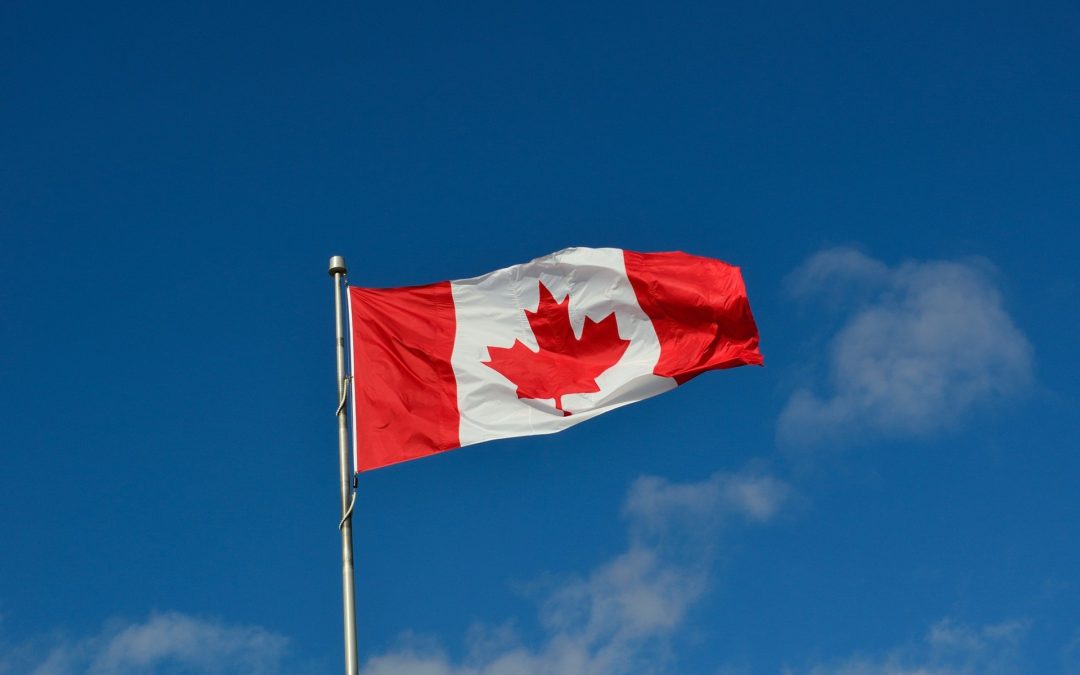
by Immilaw Team | Dec 3, 2021 | Canada Immigration
Why did they refuse your eTA (electronic Travel Authorization) / TRV (Temporary Resident Visa)?
There are many reasons for refusing eTA and TRV. Firstly, it depends on the type of visa; whereas visa-exempt countries require only an eTA, visa-required countries require a TRV. In addition, an eTA takes only up to 24–72 hours to process and issue. For TRV issuance, the screening process is more stringent and takes between 2 weeks and 4 months to complete. It also depends on the traffic at the visa office that is processing the document.
Reasons for refusal
TRV
Visa-required countries expect travelers to have a TRV, a form of travel authorization to the country before they board the plane at the airport. The government of Canada thoroughly scans people belonging to countries on the non-visa exempt list before allowing them entry into Canada.
The TRV application process is a lengthy and complicated affair. The applicant must submit personal and family information and support it with appropriate documentation. But there is no interview involved. The visa office relies exclusively on the facts provided in the application form and does not request any additional information. So the applicant has to present the case powerfully to receive a Temporary Resident Visa.
Due to a lack of understanding of the TRV issuance process, many individuals apply without seeking any help, which frequently results in a TRV refusal for many applicants. Once an applicant receives a rejection, they are flagged, and it becomes more difficult to receive approval on subsequent attempts.
The eTA and TRV have the same refusal reasons. But, TRV can be denied for 13 additional reasons during the screening.
TRV Refusal—Reasons
Lack of travel history: TRV refusal is common for applicants who have never traveled outside of their native country before and apply on their own. Our immigration law firm can help you overcome this rejection by including appropriate Federal Court cases and legal arguments.
Strong family ties to Canada: TRV refusal is common for applicants who apply independently and have close family members residing in Canada. Our immigration law firm can help you overcome this rejection by citing appropriate Federal Court cases and legal arguments.
Length of stay: Applicants who want to stay longer in the country have to show a significant amount of funds.
Failure to provide a compelling reason for visiting Canada may result in TRV refusal.
Other reasons include:
- Inauthentic documents
- Current employment situation
- Listing of personal assets
- The financial position of the host in Canada
- Lack of employment prospects in the native country
- Illegal residency status in the native country
- Others
eTA – Refusal Reasons
Applicants from visa-exempt countries suffer eTA refusal for inadmissibility reasons.
They are:
- Criminality
- Misrepresentation
- Previously deported
- Medical inadmissibility reasons
- Human rights violation reasons
Canadian visa authorities refuse TRV in cases where the applicant seeks the help of an unauthorized consultant to fill out the application form and organize the supporting documentation. These consultants also offer special deals, free evaluations, and guaranteed job offers.
Canadian law states that it is a criminal offense to indicate that a visa is guaranteed to a visa applicant. Therefore, consulting any third party which makes this kind of claim and attaching any fake job offer along with the application can result in a TRV refusal.
Working with a knowledgeable immigration lawyer to prepare and re-submit an eTA or TRV application often leads to higher chances of approval.
If you wish to apply for an eTA or a TRV, you can contact ImmiLaw Immigration today. If you have had a previous TRV/eTA refusal, we can restart the process to reapply for the visa. You may contact our office at 613-704-5757 or send your query to us at info@immilawimmigration.com. We will schedule a consultation with one of our professional immigration lawyers.
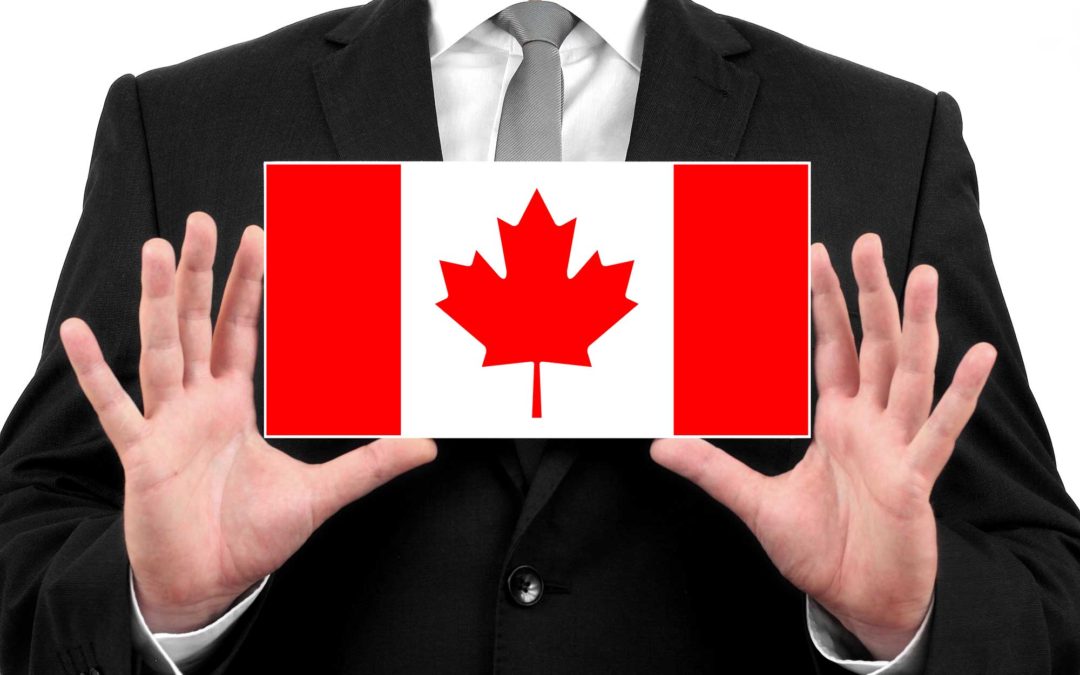
by Immilaw Team | Nov 3, 2021 | Canada Immigration
Immigration applicants under Express Entry have to earn a competitive CRS score (Comprehensive Ranking System) to receive a federal invitation. However, the applicants don’t need to have a job offer ready; express Entry candidates with high CRS stand a greater chance of getting a PR application approved.
The Provincial Nominee Program (PNP) is an alternate immigration route to Canada as popular as the Express Entry System. The PNPs set up by the different provinces strive to apply a more balanced set of criteria to allow a predetermined number of applicants every year to settle down in their provinces as permanent residents. Each province has its nomination criteria. For any applicant to be eligible to immigrate via a PNP, they must earn a nomination by the said province/territory.
How Does Saskatchewan PNP (SINP) Work?
Nine provinces and two territories in Canada, including Saskatchewan, have set up their PNPs. For example, the Saskatchewan Immigrant Nominee Program (SINP) offers two immigration pathways to Canada to earn a chance to work and live in the Saskatchewan Province of the country. In addition, the SINP is open to international immigrant applicants.
Saskatchewan is a province made up of prairies and is located in Western Canada. Activities such as farming, agriculture export, fishing, and forestry contribute to the province’s economy.
The SINP gives foreign nationals a chance to settle down and become permanent residents if they wish to do so. There are different streams of immigration that one can apply through SINP. However, two busy immigration pathway programs allow applicants to apply for permanent residence without a job offer.
1. Saskatchewan Express Entry-linked Scheme
An applicant intending to use this stream should have an active profile in the Express Entry scheme to apply. This enhanced version of the PNP allows candidates nominated by the Saskatchewan province to receive an additional 600 points towards the CRS score, guaranteeing a chance to apply for permanent residence here. To receive a nomination from Saskatchewan, the candidate should apply via Express Entry by creating a profile in the category and expressing an interest in settling down in the province.
To apply in the International Skilled Worker (Express Entry) category, the applicant must meet the following basic requirements:
- Score a minimum of 60 on 110 points on the SINP assessment grid;
- Have an active Express Entry Profile Number and the IRCC Job Seeker Validation Code;
- Meet language standards set by Express Entry and have test results in hand;
- Have minimal work experience levels in their field of training/education in a professed in-demand occupation in Saskatchewan (NOC 0, A, or B);
- Have a post-secondary school or training equivalent to a minimum of one year of Canadian education;
- Show the presence of adequate funds in hand to cover settlement fees in Saskatchewan.
2. Saskatchewan Occupation-in-Demand Scheme
residence in this category. The province prefers to allow applicants who have skills to fill gaps in the job market. To be eligible to apply through this scheme, the applicant should have at least one year’s experience in one of the jobs found in Saskatchewan’s list of Occupations In-Demand.
The following are the specific requirements that an applicant must meet to apply in the International Skilled Worker (Occupation In-Demand) category:
- Score a minimum of 60 on 110 points on the SINP assessment grid;
- Live outside Canada/have proof of legal status in Canada;
- Should not be a refugee claimant;
- Have scored at least four as per the Canadian Language Benchmark (CLB) tests;
- Should have completed post-secondary education/training/apprenticeship and must have an equivalent foreign education credential;
- Must have work experience that is related to the occupation/education;
- Must possess stipulated work experience related to their field of education/training in a skilled in-demand occupation in Saskatchewan at the time of application (NOC 0, A, or B);
- Show the presence of adequate funds in hand to cover settlement fees in Saskatchewan.
Saskatchewan has already invited 2,733 candidates via Saskatchewan Express Entry and 3,433 via Occupations In-Demand to apply for permanent residence in 2021. Ontario has also issued invitations through its PNP (Human Capital Priorities Stream), which does not require an applicant to have a ready job offer to apply for permanent residence in the province.
Contact Immilaw Immigration to find out more about your options for Canadian immigration, and you can fill out our immigration assessment form. You can call us at 613-276-1454, or you may send in your query at info@immilawimmigration.com. We will schedule a consultation for you with one of our immigration lawyers.

by Immilaw Team | Oct 14, 2021 | Canada Immigration
Applications for spousal sponsorship in Canada receive top priority because it is crucial for families to be together. In this article, we answer some of these questions our clients regularly ask.
- How long does the spousal sponsorship process take in Canada?
- Is spousal sponsorship in Canada easier if you hire a Canadian immigration lawyer?
- How to choose an immigration lawyer?
- Is it possible for me to apply on my own for spousal sponsorship in Canada?
Spousal sponsorship applications can take up to 12 months to process. The process is often faster; however, depending on the nature of the specific case, it may take longer for some. In some complicated cases, the visa officer is likely to ask you for more proof regarding your relationship status, and this can typically delay the spousal sponsorship process.
The best way to ensure that this process takes minimum time is to do it right the first time by hiring an immigration lawyer in Canada. Though it is possible to apply on your own, it is more important to make a correct submission that convinces the visa officers that your relationship is genuine. Moreover, the CIC receives many fraudulent applications daily. So, the visa officers are wary and on guard constantly.
The spousal sponsorship application is approximately 120 to 150 pages long, and filling the application is a long and arduous task. As a result, CIC returns wrongly filled and incomplete applications three months later.
Reasons for Refusal of Spousal Sponsorship Applications
There are a few common reasons for spousal application rejections:
- It is not easy to follow online instructions for filling up spousal sponsorship applications on your own. The process is complex, and applicants only realize many mistakes after rejecting the application forms three months later.
- Rejection of the application forms takes place when the applicant uses outdated application forms or submits incomplete forms. CIC returns such application forms. This can cause a delay of two or three months. In such cases, a PR ban for two years can also come into effect.
- Spouses from non-visa-exempt countries require a TRV to travel to Canada. Therefore, they will not travel to Canada for at least two years unless they possess a TR visa. In cases of refusal of the spousal sponsorship application, IRCC does not approve a TR visa.
Hiring an immigration lawyer and its advantages
Hiring an immigration lawyer makes it easy to file the spousal sponsorship application form with a higher chance of success. Immigration lawyers will make sure to prepare the application form thoroughly and adequately. This will prevent the three-month delay or the spouse from falling out of status in the country.
Hiring an immigration lawyer means they will foresee all the potential issues that cause the visa officer to flag applications for the interview or issue a letter that doubts the genuineness of the relationship or altogether refuse the application.
Spousal sponsorship applications of couples in genuine relationships also see rejections if the genuineness of their relationship status is not projected powerfully or convincingly. This is even more necessary for common-law partners and others whose relationships are just about two years old.
How to choose the best immigration lawyer in Canada
It is a fact that all lawyers are competent in handling spousal sponsorship applications and ensuring a higher chance of success. Therefore, it is essential to select the best Canadian immigration law firm like ImmiLaw Immigration with due diligence and select one adept at working in immigration or handling your application file.
Book Your Appoinment Today
Points to keep in mind when choosing your immigration lawyer in Canada
- Confirm that the immigration lawyer has handled cases at the Immigration Appeal Division (IAD) or Federal Court. Such a lawyer will know to spot potential issues even before they occur. They would also have experience in arguing ‘refused’ spousal sponsorship cases. These would be cases in which the applicants applied on their own or hired weak legal representation. Immigration lawyers also make it a point to draft extensive submission letters attached to the spousal sponsorship application forms. This forms an essential part of the application process and is the first item that the visa officer reads.
- Immigration lawyers attach a submission letter that presents all the issues to the authorities. The contents of this letter depend on each client’s facts and circumstances. It is also important that the immigration lawyer sends the client a copy of the submission letter for review. Client review is essential as it can help to avoid presenting incorrect facts, which amounts to misrepresentation. Misrepresentation is a severe offense and can lead to a five-year ban.
- Spousal sponsorship applications run to about 150 pages, and close to 60 documents go with every application. Though it is not compulsory to hire an immigration lawyer, it is frustrating and difficult for applicants to do this correctly all by themselves. Moreover, for a law firm to collect all these documents by email is not a practical solution. However, it is vital to choose a law firm that uses file-hosting services like Dropbox, through which they can assign shared file access to each of the clients. This allows the firm to be responsive, and they can immediately respond to the client’s queries.
- Lawyer License and Website : You must go through the website of the immigration law firm to get an idea about its credentials and to confirm that lawyers are licensed and experienced.
You can send in your queries to us at info@immilawimmigration.com or call us at 613-704-5757. We will schedule a consultation for you with our expert Canadian Immigration lawyer after we assess your eligibility.







